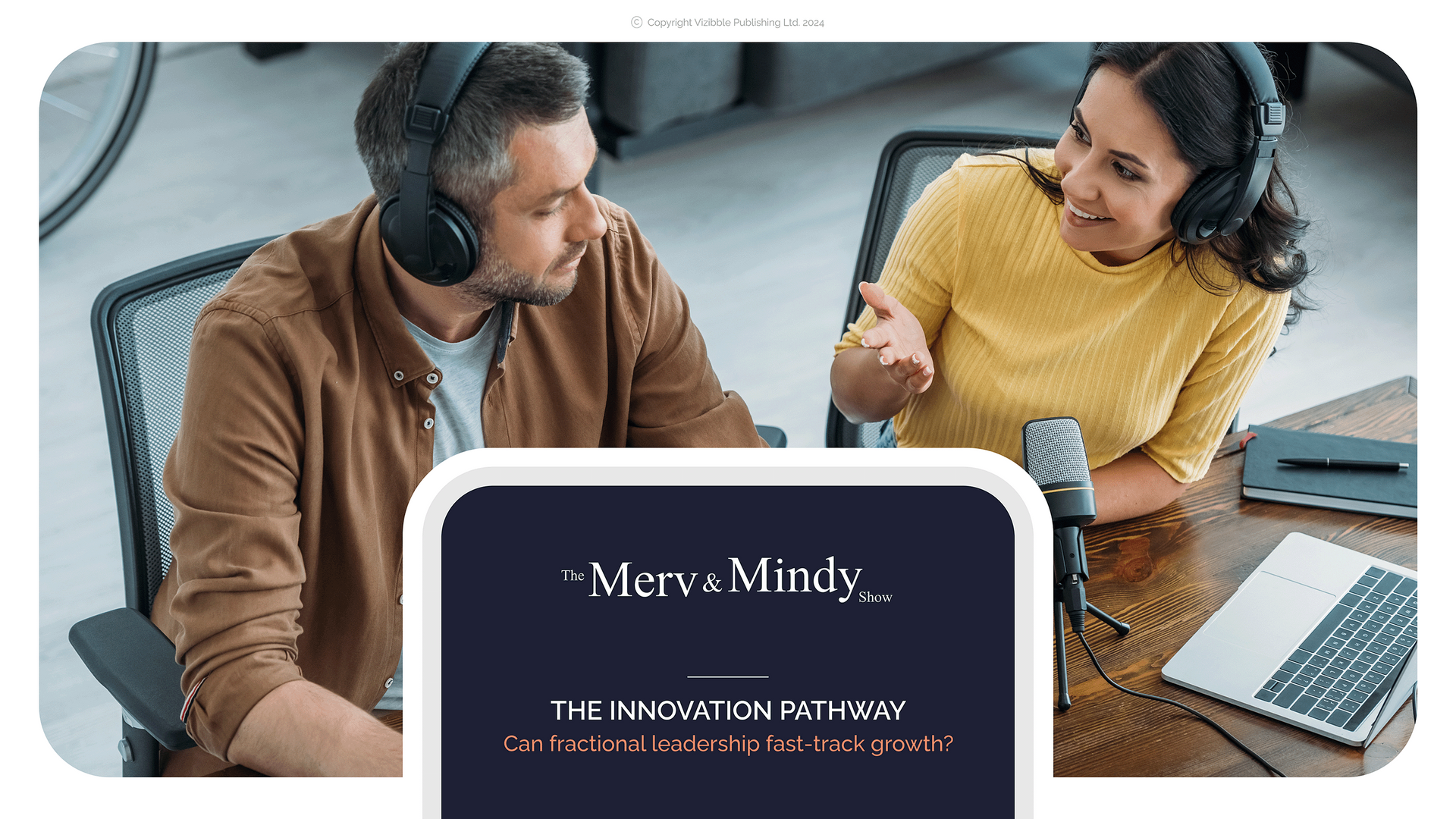A problem I am often asked about is how to transform and scale a business in a world of limited means. You might have the same challenge? Don't worry, you're not the only one.
Let's think about this from a marketing lens for a moment. Your sales are growing strongly (lets say 40% YoY). The business is increasing market-share over the competition. Operationally, COGs is managed well, your P&L is healthy. Looking good? Feeling good? So if everything is fine, the question becomes WHY transform? Here's the problem. Marketing's contribution to the business seems to be stagnating and your budget is fully utilized. You are stuck covering only 30% of the pipeline and your conversion of marketing generated (or contributed) pipeline to billed revenue is low
Sponsored Advert

(say 15%). To cap it off, the year-end is approaching; next year's targets are pushing the sales budget up by 50%. Your leadership is demanding that marketing improve contribution to business, but given your average performance YTD, you are told you need to do that with flat budget and you'll see no increase in FTE. Oh and remember, your demand generation targets must increase by 20% on top of the planned 50% sales growth that will come in next year's budget. Lastly (yes there's more!) is the real impact this has on your teams. They think they are doing great vs their plan, but are now being kicked by sales and commercial leaders for not being realistic. So you also have a team that is likely becoming disillusioned and thinking 'why do I bother'....
Well, its a situation that many marketing leaders face at one time or other in their career and one that leads many to toward change and transformation. Now I don't even pretend to try and tackle every permutation of transformation in this blog. It would be silly to try. But what I hope to show is that if you take a step back from the dance-floor of day-to-day work and watch the show from the balcony, you'll have time to start transformation in the best way. That starting-point is to break transformation down into bite-sized chunks, because it's a big plate of food to get through. Planning the meal ahead really is the first critical success factor.
Starters - Inspire a vision.
With the above example in mind, much of the immediate problem is likely to center around your current vision, the way you plan, manage stakeholders, set expectations and organize your team. Why? If your performance is 'on-plan' but the leadership are wondering why you can't improve the team performance, it is probably because you set the bar too low to start with. That means you need to re-evaluate your starting point - your vision. If you establish a new transformative vision that goes above and beyond the next three years business expectation, then you'll be setting yourself up for success. It's all about having a clear view of your destination - as Steve Covey says - start with the end in mind.
Fish Course
With a clear vision in place, you can work backwards and build a staged and clearly timed plan that gets you to your destination in iterative steps of business, organisation, team capability and knowledge, resources and performance development. Each part of that plan needs to run as a parallel course to the other as you'll have dependencies and common critical success factors to manage as you go.
Main Course
As you get into the meat of things, you'll quickly realize that it is hard to envision in isolation. To truly find the ideas that help you scale, you need to have a pool of best practices, stories, business models, processes and inspiration at your finger tips. The great thing is that there are so many places to go for help - hew are a few of my favourites:
Innovation from within - Dragons Den. This is one area you can quickly, easily and freely exploit. Set-up a Dragons Den type approach to uncover great new ideas. Crowd-source ideas from your own teams and invest in those ideas that hold weight. Test them out, fail fast, learn and find the next that works. It's an inspiring way for your team to get involved in your transformation. Talk with us if you'd like us to facilitate a program for you!
Innovation from outside - Attend conferences - especially those that deal with change and transformation. You can be inspired by networking with others going through similar change and hear from industry experts all at the same time. One of the worlds top 10 conferences dedicated to this is in C
Canada, called C2. You can check it out here.
Forced innovation - Look at your competition. It's always advisable to know what your competitors are doing, how they work and the experiences they give customers. Be careful not to be drawn into being a 'me-too' though. See what they do, learn from it but think how you can leap-frog the competition. A good book to read on leap-frog economics 'Making Breakthrough Innovation Happen' by Porus Munshi.
Leverage Trends - Ask Consultants. Using external consultants (like Vizibble) can help shorten your time to understanding the latest trends, insights and direction the market will go. Consultants can act as a fresh set of eyes to assess or help you navigate each stage of your transformation.
Use What's Online - A wealth of information. If you want something really straight forward, go online and check out ChiefMartec. Their view on marketing technology transformation is astounding.
Clearly there are many sources of support to help you envision and find ways to innovate. The key thing is that none of this advice matters, nor is applicable until it lines up with your vision and your destination.
Sponsored Advert

Dessert Course
As you move from planning to the execution of your transformation strategy, the key thing to remember is to work the plan, stay on track and time, completing each task in order. Don't be tempted to short-circuit the processes you've put in place or compromise when tough decisions are required. Excellence in execution is what it is all about. Clearly, as you execute, all the prep-work about measuring the state of your transformation comes into play. To get the most out of that, its critical to have a clear rhythm of business in place to regularly check progress of all key milestones and measure the impact of the changes you are are making through leading and lagging indicators.
Coffee
Don't be fooled to think that is it though. Internal-comms play a strategically important part. Having an editorial desk set-up to write regular updates, promote success and progress, as well as inform the leadership and wider business on your transformation progress is critical. As a leader try to put equal weight into making the transformation happen AND being the the very visible focal point for that transformation within the business.
Of course, this sounds fine in a blog, but we all know in real-life there so many things can disrupt transformation. So our last thought of the day is to talk about building a coalition of the willing. If you've just one person trying to drive transformation you will likely fail. Success comes from leveraging the network of capabilities inside your organisation - those who are fully brought into the reason 'why', who help build process, project-manage change and influence others.
I said earlier that we'd in no way cover every aspect of transformation - only give a starting framework of how to think about the road ahead. If you'd like to reach out and talk more about how business leaders can manage periods of transformation and change, I'd be delighted to hear from you directly.
- End
About Merv, Mindy and Phill Battersby
Merv and Mindy are our shows' fabulous AI hosts. They team up to debate the amazing content our resident and guest experts provide, offering our listeners entertaining and insightful context to the original subject matter.
Phill Battersby is one of our resident authors. In the evenings he creates content for the show. During the day is busy working with his clients as a fractional leader. Phill is a highly capable, proven, results orientated CMO, with significant experience from working in executive positions at Microsoft, SAP and more. Phill offers independent, part-time or fixed-term contracts to help his clients lead change, deliver specific objectives and achieve outcomes. His fractional services are perfect for large businesses needing additional leadership support, and especially for an SME’s first CxO hire, when cost-sensitivity or risk of a full-time hire are key considerations.
Find out more here:
www.vizibble.com
Sponsored Advert

Please share our shows
Start or join the debate





